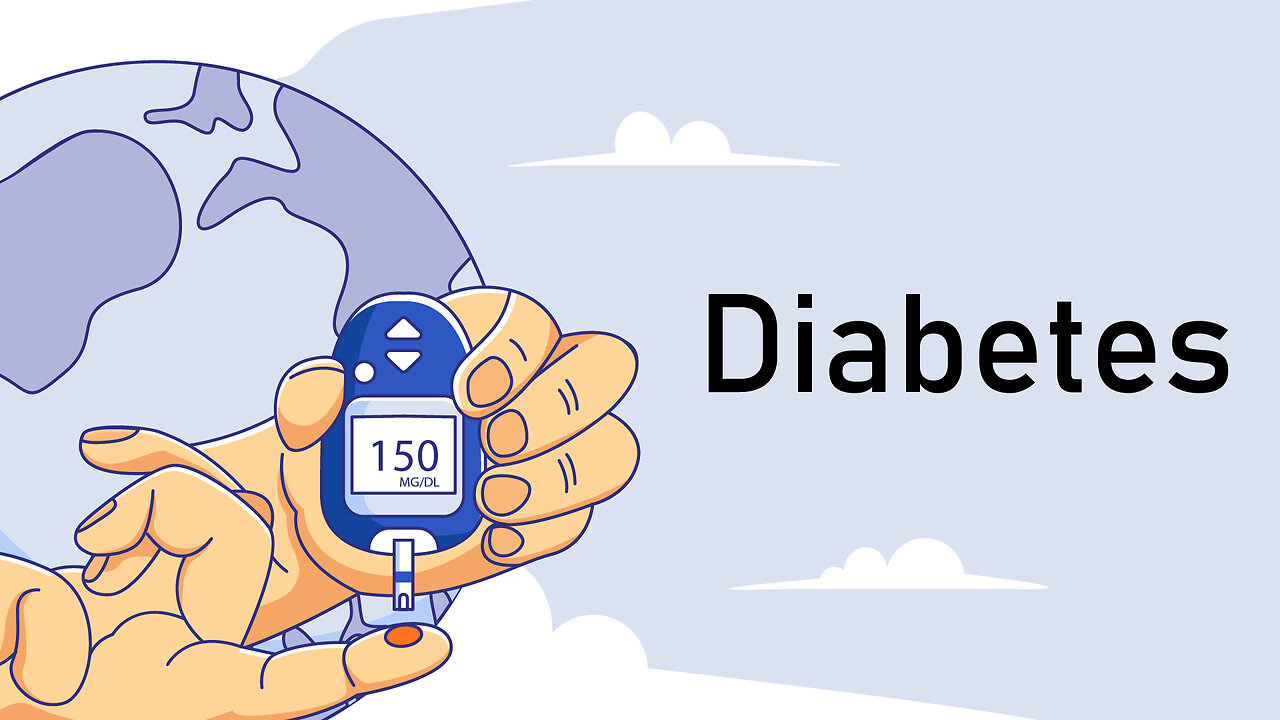Premium Only Content

what is Diabetes?
what is Diabetes?
Diabetes, also known as diabetes mellitus, is a chronic medical condition that occurs when the body has difficulty regulating blood sugar (glucose) levels. Glucose is a crucial source of energy for the body's cells, and its levels need to be carefully maintained within a certain range. Insulin, a hormone produced by the pancreas, plays a central role in this process.
There are three main types of diabetes:
Type 1 Diabetes: In this autoimmune condition, the body's immune system attacks and destroys the insulin-producing cells in the pancreas. As a result, individuals with Type 1 diabetes have little to no insulin production. They require lifelong insulin injections or the use of an insulin pump to manage their blood sugar levels.
Type 2 Diabetes: This is the most common form of diabetes, usually occurring in adulthood. In Type 2 diabetes, the body becomes resistant to the effects of insulin, and the pancreas might not produce enough insulin to compensate for this resistance. Lifestyle factors, genetics, and obesity can contribute to the development of Type 2 diabetes. It can often be managed with a combination of dietary changes, physical activity, oral medications, and, in some cases, insulin.
Gestational Diabetes: This type of diabetes develops during pregnancy and usually resolves after childbirth. It occurs when hormonal changes during pregnancy lead to insulin resistance, and the pancreas cannot produce enough insulin to meet the increased demand. Gestational diabetes requires careful monitoring and management to ensure the health of both the mother and the baby.
Uncontrolled diabetes can lead to various complications over time, including cardiovascular disease, kidney damage, nerve damage (neuropathy), vision problems, and slow wound healing. Therefore, it's important for individuals with diabetes to work closely with healthcare professionals to manage their blood sugar levels and reduce the risk of complications.
Symptoms of diabetes can include excessive thirst, frequent urination, unexplained weight loss, fatigue, blurred vision, and slow healing of wounds. It's essential to seek medical attention if you suspect you might have diabetes, as early diagnosis and proper management are crucial for maintaining overall health
-
 LIVE
LIVE
Steven Crowder
2 hours agoAI Celebs Just Scammed Women out of Millions & Premium Interview w/ Patrick Christys
38,895 watching -
 LIVE
LIVE
Tim Pool
58 minutes agoIsrael VS Palestine DEBATE, Misfit Patriot VS Rathbone | The Culture War with Tim Pool
2,865 watching -
 1:02:30
1:02:30
VINCE
2 hours agoGavin Newsom Is A Major Trump Fan | Episode 114 - 08/29/25
141K64 -
 LIVE
LIVE
LFA TV
5 hours agoLFA TV ALL DAY STREAM - FRIDAY 8/29/25
4,343 watching -
 1:32:10
1:32:10
Nikko Ortiz
2 hours agoPainful Life Experiences
6.65K4 -
 1:42:16
1:42:16
Dear America
3 hours agoThe Left Chooses TRANS Over Christianity!! WOKE Mayor Is Doubling Down!!
77.7K52 -
 LIVE
LIVE
Caleb Hammer
1 hour agoGaslighting. Toxic. B*tch. | Financial Audit
90 watching -
 LIVE
LIVE
Viss
1 hour ago🔴LIVE - Positioning, Tactics, Strategy How To PUBG! - PUBG 101
115 watching -
 LIVE
LIVE
The Big Mig™
3 hours agoThe Return Of Law & Order w/ Sheriff Mack
5,113 watching -
 LIVE
LIVE
Major League Fishing
7 days agoLIVE! - Fishing Clash Team Series: Challenge Cup - Day 6
214 watching